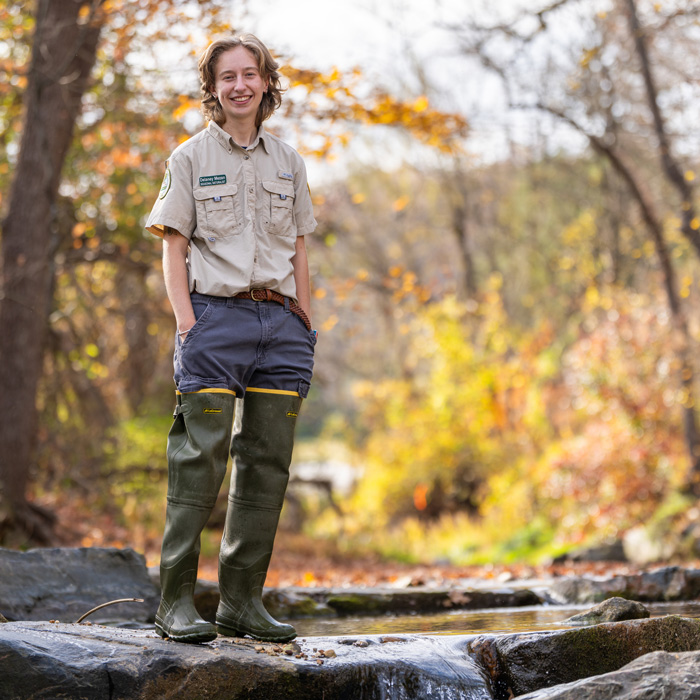TU professors’ research seeks to increase social, ecological resilience
From disaster recovery to sustaining wildlife, Sayma Khajehei and Alice Besterman have prioritized resilience in their research
Throughout Towson University, faculty members embark on a variety of research projects that break new ground and lead to solutions for challenges facing the world every day. Two professors in particular have identified areas of challenge and seek to provide resources through their research to decision-makers and communities. Even though their research topics differ, professors Sayma Khajehei and Alice Besterman are working toward resilience.
“The process of discovery motivates me,” says Besterman, who focuses her research on the conservation of marshes. “I have a deep love for nature; discovering the stories and patterns in natural systems and working toward their preservation is interesting, and it’s fun. Plus, human society relies on nature, so doing socially relevant research to sustain beneficial ecosystems is critical.”
Khajehei, who researches sustainable human communities, notes, “Through my research, we can help socially vulnerable populations prepare for disasters to mitigate risks before it’s too late and ensure safety after the disaster passes.”
Sayma Khajehei, College of Liberal Arts
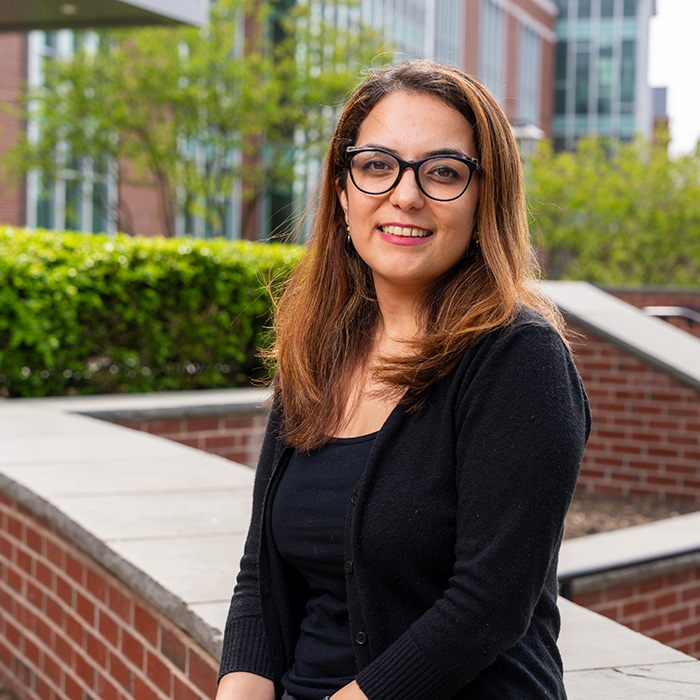
Sayma Khajehei, a professor of geography, examines the gaps in current disaster recovery systems, particularly the lack of involvement from public housing authorities in emergency planning. She has studied post-disaster recovery in areas like Puerto Rico and North Carolina, where vulnerable residents faced prolonged displacement due to insufficient housing recovery efforts following hurricanes.
She also studied preparedness in Salt Lake City, a city at risk of earthquakes, to identify how housing authorities and emergency management can collaborate more effectively. She found that departments often operate in silos, lacking coordination—especially critical when serving socially vulnerable populations.
Looking forward, her research in Baltimore County will explore inter-agency collaboration to enhance disaster resilience in flood-prone and heat-impacted areas. She is especially focused on integrating the voices of public housing residents into disaster planning to ensure more inclusive and effective recovery strategies.
Students benefit from Khajehei’s research as well. It has inspired a class focused on planning for resilient communities through the Diversity and Inclusion Faculty Fellows program.
Alice Besterman, Fisher College of Science and Mathematics
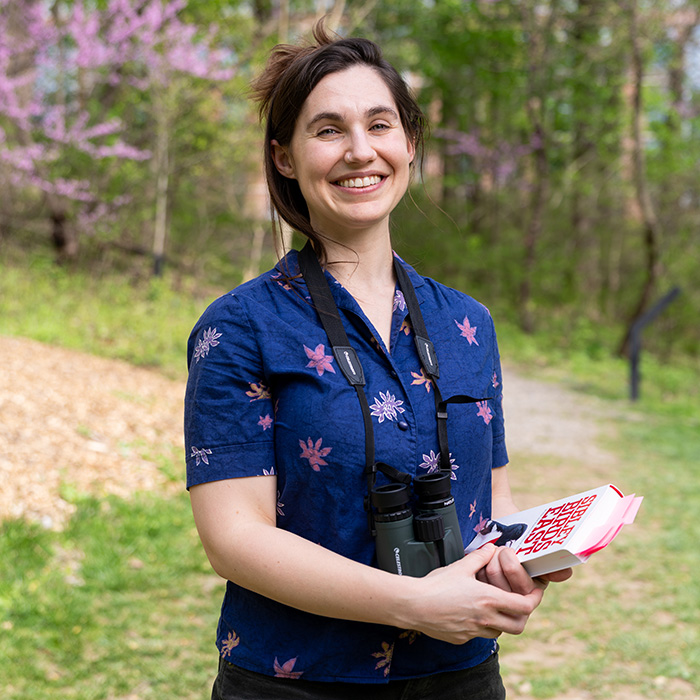
Alice Besterman is a coastal ecologist and professor of ecology and ornithology (scientific study of birds) in the Department of Biological Sciences. Her research centers on the structure, function and sustainability of salt marshes—critical coastal ecosystems that serve as wildlife habitats and natural defenses for coastal communities. Her work explores how environmental stressors, particularly sea level rise, are impacting the resilience and long-term viability of these ecosystems.
She focuses on how marshes support the ecosystem, especially bird species, and how rising waters threaten the plants and animals that depend on these environments. For example, many marsh-nesting birds are already in sharp decline, with young birds drowning due to increased flooding. Besterman seeks to understand how marshes can withstand, resist and recover from man-made or natural stressors to inform restoration efforts and short- and long-term conservation planning.
She is running experiments on the coast in Massachusetts and the Chesapeake and other bays in Maryland. As research progresses, she hopes to expand her experiments to Virginia and other areas on the East Coast. Additionally, through her work with the Audubon Society, Besterman hopes to provide local communities with resources they can use, focusing on how to protect their marshes and an understanding of how best to advocate.
Besterman also uses her research to connect theory to reality for her students. “I’m hoping I can help students connect what we’re learning in class to the real world. I ask, ‘How are climate change and invasive species changing biological communities? How can we make these habitats more resilient?’”
In the classroom, Besterman conducts several field trips so her students can gain real-world experience in ecosystems, studying birds and other wildlife and habitats.
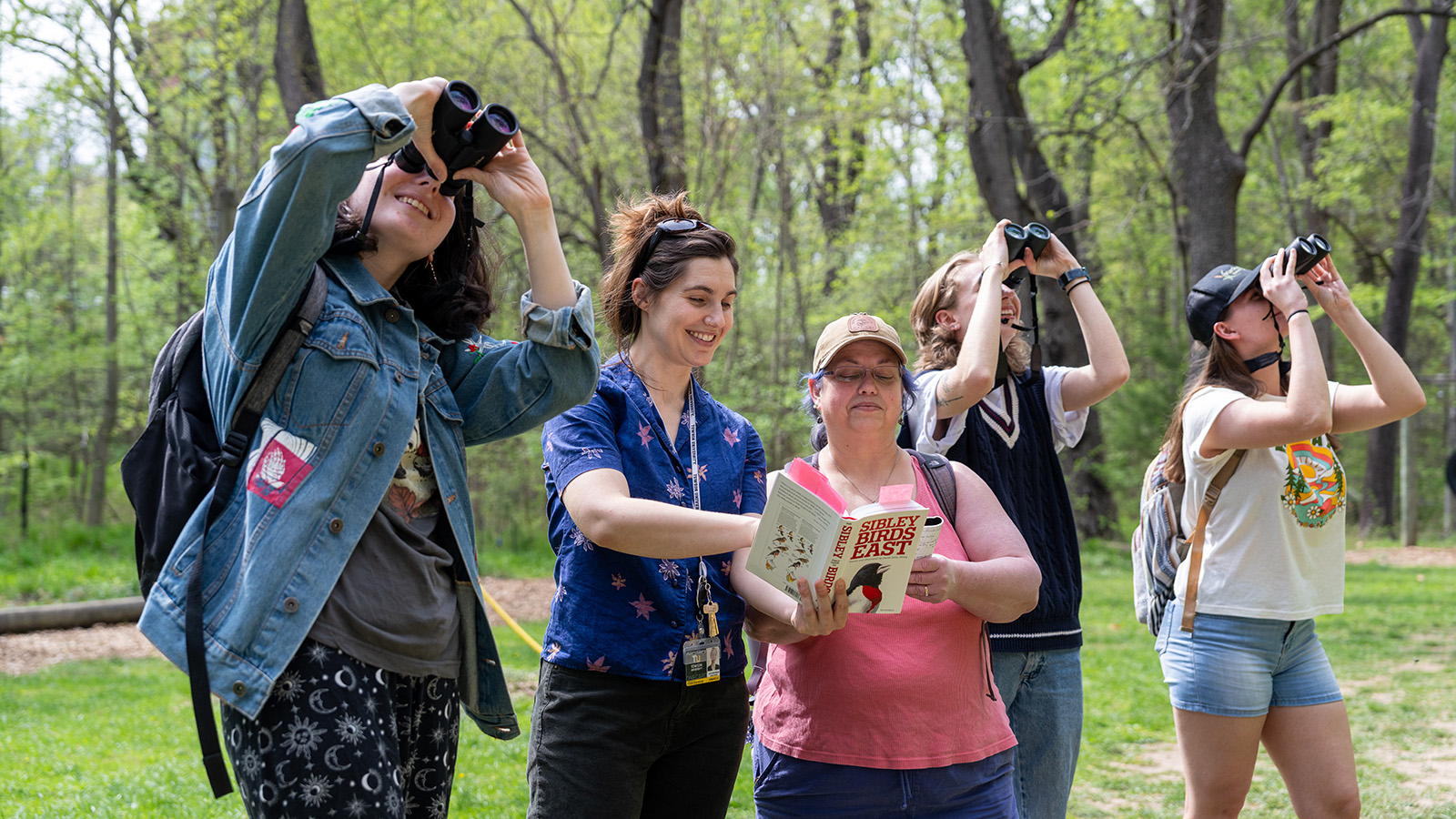
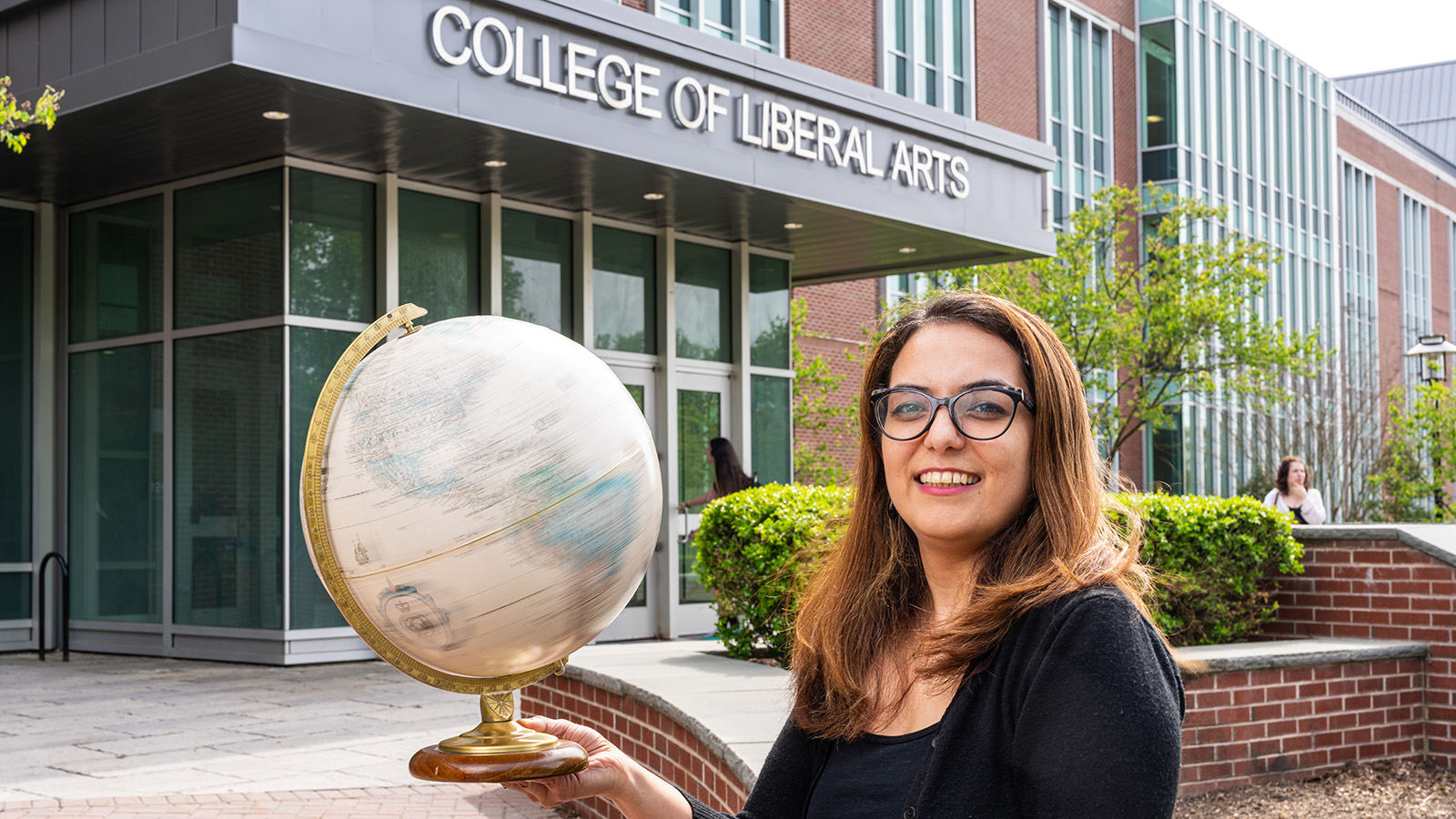
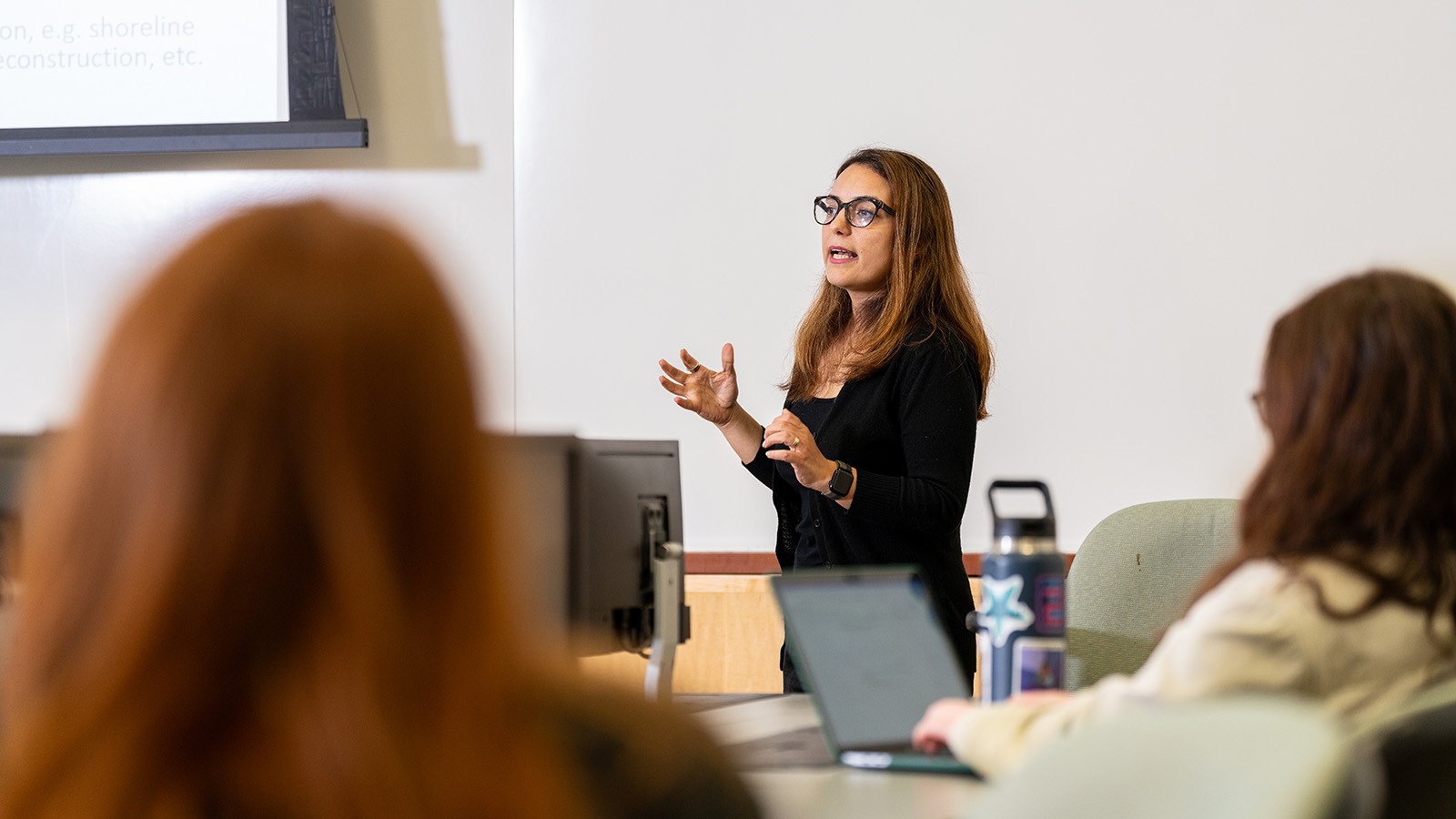
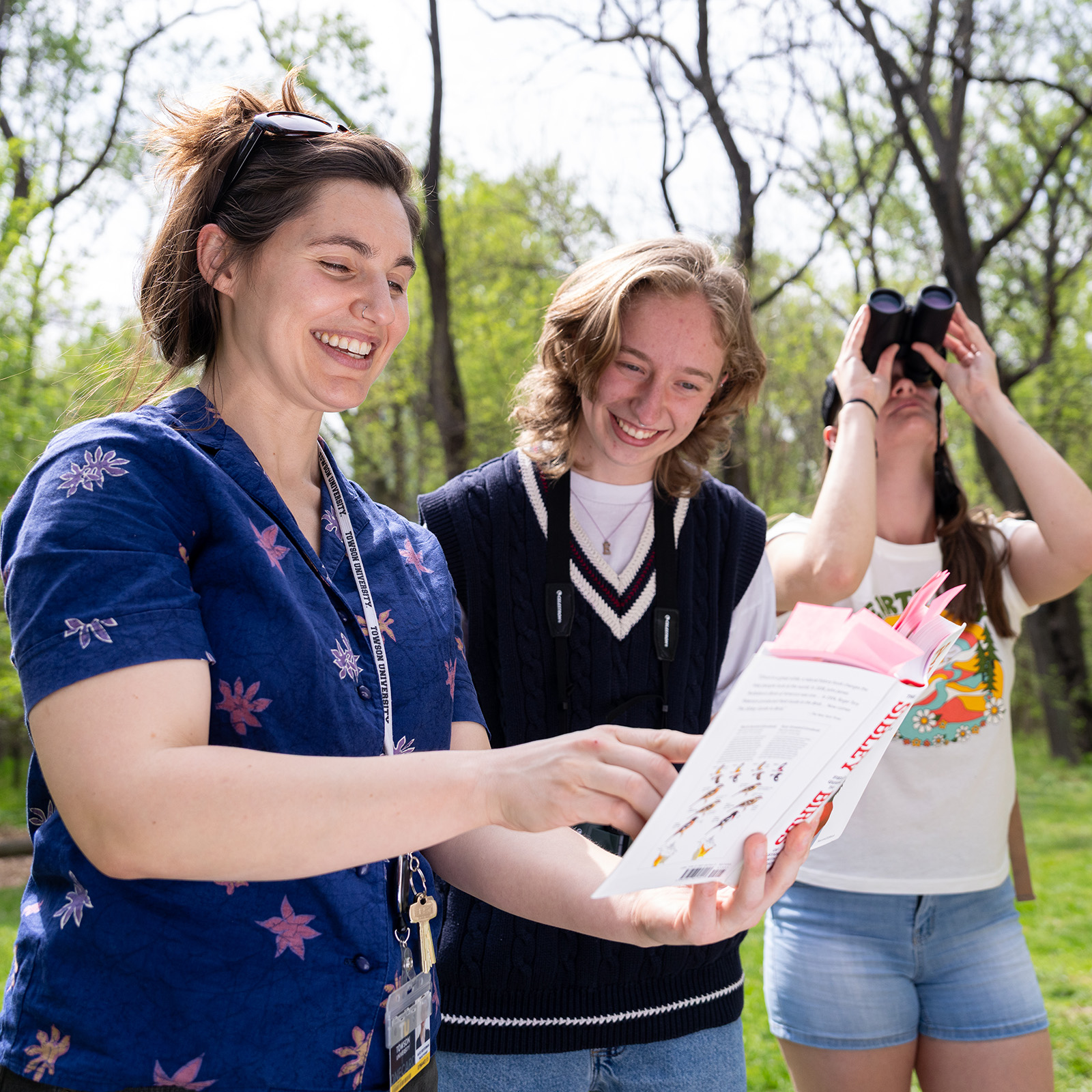
Upper left: Besterman studying birds and sounds with students; upper right: Khajehei; lower left: Khajehei teaching; lower right: Besterman identifying birds
Sign Up for Classes
Khajehei is teaching Planning for Resilient Communities for the Department of Geography and Environmental Planning in CLA and has plans to teach it again in spring 2026.
Besterman teaches General Ecology in the fall and Ornithology in the spring semesters of even years in the Department of Biological Sciences in FCSM. The next opportunity to take that course will be spring 2026.
Consider taking a class to learn how to make your community more resilient.
